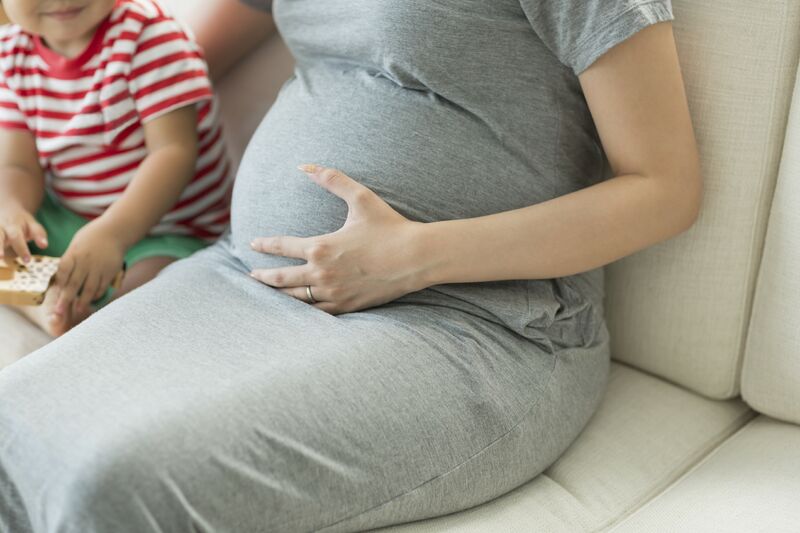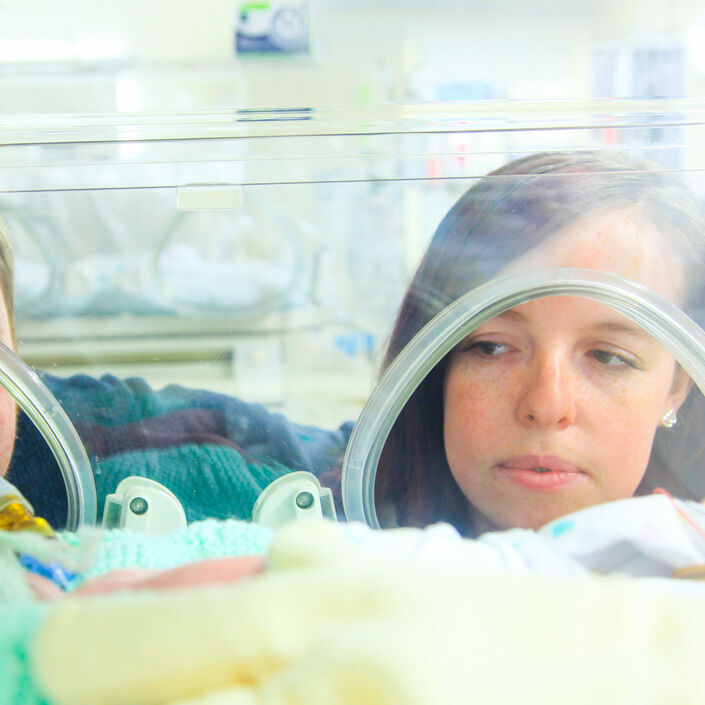If you have previously had a baby born premature or sick, you may be thinking about what might happen if you have another baby. No matter the type of neonatal care experience you have had, you may be thinking about whether you might have a similar experience again.
Many parents have these concerns, and it is normal to think about how you will cope with the situation if it happens again. It is important to remember that every pregnancy is different.
If you are thinking about having another baby or you or your partner is pregnant, speaking to a healthcare professional who can give you advice and reassurance is a great first step.
Speaking to a consultant
You can ask your GP to refer you to a consultant. Use this opportunity to get as much information as possible about the previous pregnancy. You may want to write some questions before your appointment so that you feel more prepared.
If you are attending an appointment on your own, you might also want to bring somebody else with you to make a note of what was said.
Some questions that you might want to ask include:
- Why was my baby born premature or sick?
- Is it possible that I could have another baby born premature or sick?
- What extra support or checks can I have?
- Who will be responsible for our care during this pregnancy?
- Are there any treatments available to reduce the risk of having another baby born premature or sick?
No question is wrong or too small, so try and feel confident to ask about anything that is worrying you or that you are unsure about.
Whatever your experience, your next pregnancy will be monitored closely, and your healthcare team may offer more scans and checks than in the last pregnancy. If you are unsure, you can talk to your midwife or consultant for more information and advice.
Preparing yourself mentally
Some parents who have had a baby in neonatal care can go on to develop changes to their mental health. For example, some parents experience high levels of anxiety, post-traumatic stress disorder (PTSD), or postnatal depression (PND).
In a survey we did of almost 600 parents, 80% of parents’ mental health got worse after their time on the neonatal unit.
If this is something you think you are experiencing or have experienced, speaking to someone about what happened to you and how you feel may help you to process and come to terms with your neonatal care experience. You should only do this if this is something that you feel ready to do and are comfortable with doing.
Counselling may be an option for you or your partner. View our list of counsellors who have had contact with Bliss, and have some more experience in talking with parents who have experienced neonatal care.
You can also visit the British Association of Counselling and Psychotherapy (BACP) website to find a counsellor or therapist in your area.
If you have experienced trauma after a birth experience, The Birth Trauma Association has a list of counsellors who specialise in counselling anyone who has had a birth trauma experience.
Mind also has lots of information about postnatal post-traumatic stress disorder (PTSD) and birth trauma. Some neonatal units have clinics specifically for parents who have trauma relating to birth. You can ask the staff on the neonatal unit what support is available.
You may also want to talk to other parents who have had another baby after a neonatal care experience. Our Facebook page is a great way to connect with other parents.
The healthcare professionals involved in your care are also there to answer any questions or concerns you have. It is always best to ask questions for reassurance.
What will happen if my next pregnancy is considered high-risk?
Some mothers who have had a baby born premature or sick have or have had conditions that may make them more likely to have a high-risk pregnancy again. This includes conditions such as pre-eclampsia and diabetes. For some parents, the cause of their baby being born premature or sick is unknown.
The healthcare professionals involved in your next pregnancy will depend on the mother’s medical history and your neonatal unit.
At your first appointment, your midwife may recommend that this pregnancy is consultant led rather than midwife led. This means that a consultant or a team of consultants will be responsible for your care, alongside a midwife.
Your consultant team can help you to make sure that:
- the right number of scans and tests are booked
- tests are arranged (if this is needed)
- the correct medication is given (if this is needed)
- a plan is made for the care you will receive during pregnancy and birth.
Your consultant team will be available to answer any questions you have.
If your pregnancy is high-risk, additional appointments with a midwife or obstetric team (who provide care during pregnancy, labour and after birth) may be needed to check blood pressure and your baby's growth and wellbeing closely.
You may also be offered additional scans to monitor your baby's growth. If doctors think that there is a risk that your baby will be born premature, doctors may give treatment which aims to prevent premature birth. The treatment given will depend on the cause of premature birth.
Tommy’s have some more information about these treatments. Speak to your consultant if you are unsure what they mean or if you want some more information.
Some parents have told us that knowing that their next baby may need a stay in neonatal care was less overwhelming then their first experience of neonatal care, as they felt more able to prepare themselves.
You can visit our page about what to do before your baby is born for more information and tips on how to prepare.
Having another baby if your baby has died
If you have had a baby who has died, you may have had some thoughts about trying for another baby. Some parents may need more time to grieve and need some additional support before having another baby, and some parents decide not to try for another baby at all.
There is no right or wrong decision, and you need to think about what feels right for you.
The charity SANDS have a useful booklet called Thinking about having another baby that you might want to read and lots of supportive information on their website.
They also have a telephone and email helpline which you can contact by calling 0808 164 3332 or emailing helpline@sands.org.uk
Useful organisations
Action on pre-eclampsia supports families affected by pre-eclampsia.
British Association for Counselling and Psychotherapy (BACP) has a therapist directory so that you can find a counsellor or therapist in your local area.
Diabetes UK have some useful information about diabetes and pregnancy, and also has a group specifically for questions and discussions on this topic.
Mind have information about different types of mental health problems and treatments, including postnatal post-traumatic stress disorder (PTSD) and birth trauma.
SANDS works to support anyone affected by the death of a baby. They have a helpline you can call on 0808 164 3332, or email helpline@sands.org.uk. They also provide emotional support through their GriefChat, where you can chat to a specially trained bereavement counsellor on their website.
The Birth Trauma Association supports women who have had a traumatic birth experience.
Tommy’s provide information and support for pregnant people and their families, and supports families after baby loss.
Twins Trust
provides information and support to families of multiple births. You can call their Twinline on 0800 138 0509 or email asktwinline@twinstrust.org



